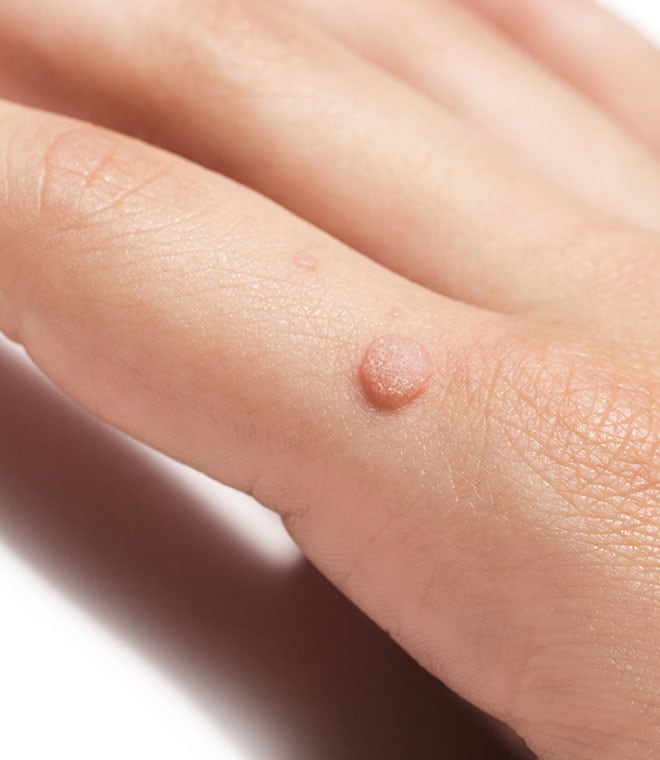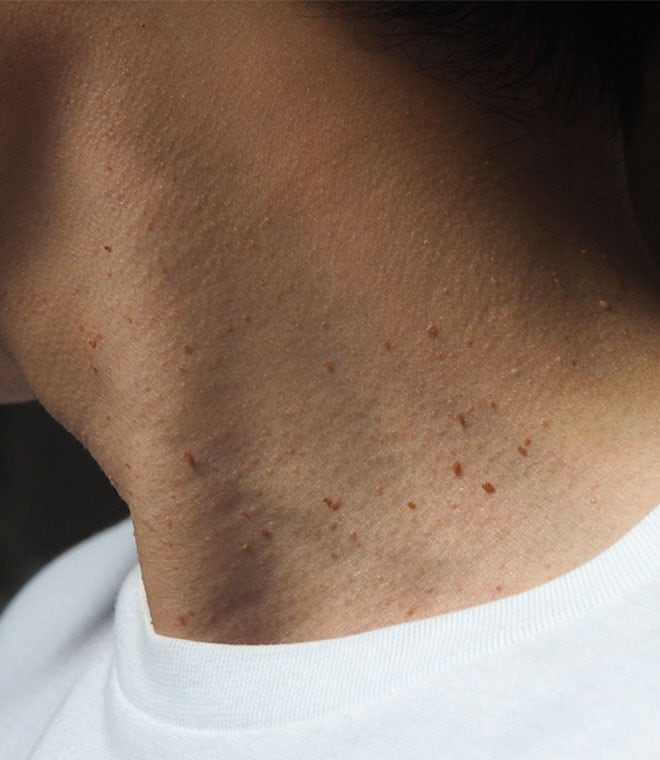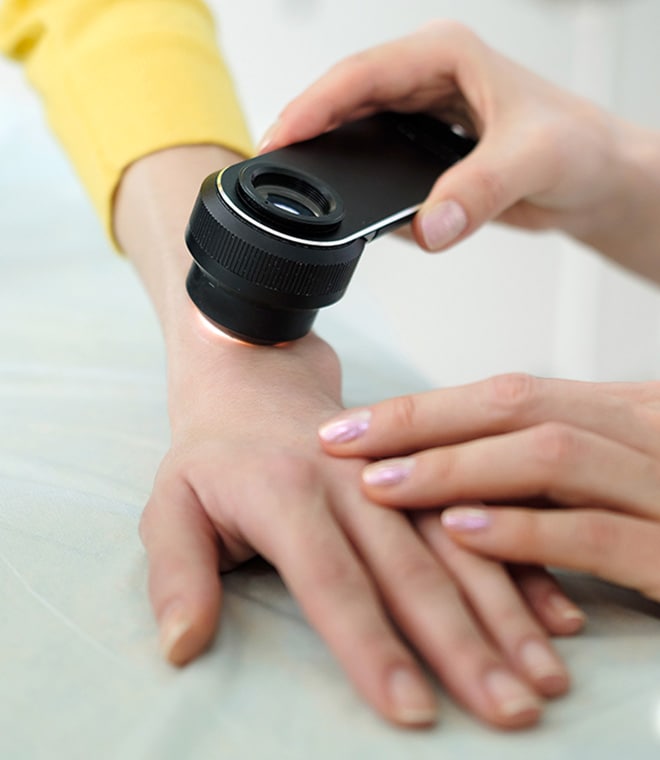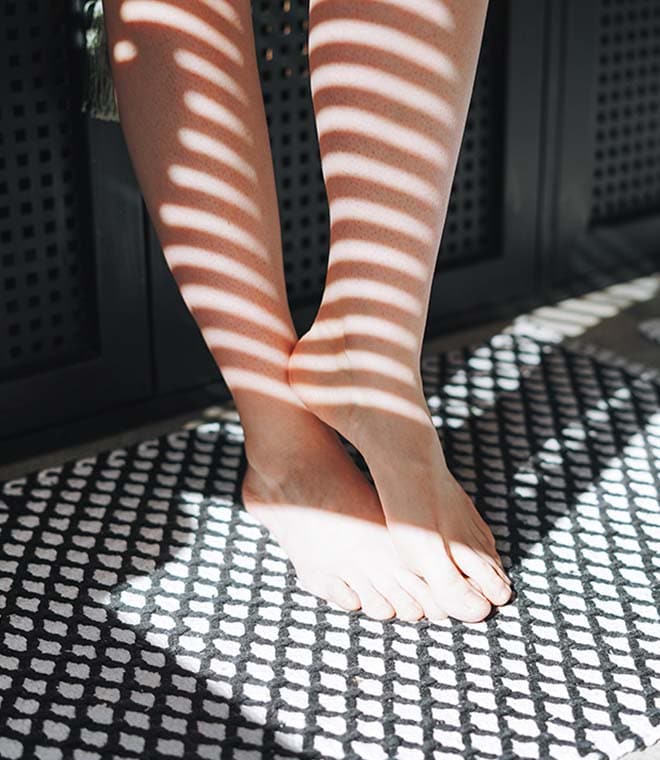Health
Plantar wart treatment: What are the options?
By Ruben J. Rucoba, MD Apr 12, 2024 • 6 min
Plantar warts are warts that form on the bottoms of your feet. Although treating and removing plantar warts can be tricky, there are a number of options that can be used at home or by a medical professional.
Over-the-counter treatments
Plantar warts are harmless and usually go away without treatment of any kind, but it may take a year or longer. However, you may want to have the wart removed if it is painful, growing or spreading. There are several over-the-counter wart removers, including:
- Salicylic acid. This is the active ingredient found in many over-the-counter wart remedies. It works by peeling away the top layers of the wart a little at a time. Before treating with salicylic acid, you may be instructed to wash and soak the wart in warm water, gently exfoliate the wart with an emery board or pumice stone, and then apply the salicylic acid product. Salicylic acid wart treatments are available in a number of forms, including liquid, gel, ointment and stick. You can also find medicated pads, similar to a patch. Medicated pads adhere directly to the wart and are typically designed to stay in place for 24 to 48 hours. After that time, they need to be removed and replaced with a new pad. Ointment, gel, stick and liquid wart remover products are typically applied daily or nightly. These methods require repeated treatments, often over weeks or months, to remove the wart completely.
- Cryotherapy. This treatment method involves freezing off the wart. There are over-the-counter wart products and in-office procedures that use this method. Be careful when storing or using wart freezing products. The ingredients may be flammable and should not be used near heat sources or flames.
- Duct tape. Studies are mixed on this treatment, but it is usually harmless and may work. Most people who have had success with this treatment use the standard silver duct tape rather than clear duct tape. However, some people with allergies to adhesives may experience skin irritation with this method.
These over-the-counter remedies are meant for plantar warts. If you have a wart on your face or genitals, do not use an over-the-counter treatment. Instead, consult your healthcare provider. You should also seek medical treatment for plantar warts if you have diabetes, a weakened immune system or other conditions that cause poor circulation in your feet.
How plantar warts are removed by a doctor
If over-the-counter medicines don't work, then it's time to see a physician to treat your plantar warts. Treatments a doctor may use include:
- Salicylic acid. This is the same wart medicine found in over-the-counter remedies for warts, but in higher concentrations.
- Cryotherapy. This treatment method involves applying liquid nitrogen to the wart. It's more effective than over-the-counter cryotherapy products, but it still requires repeated treatments, with each treatment spaced out about every two to three weeks.
- Additional treatments. Other wart medicines that have been used include the topical immunotherapy drug imiquimod, which causes an allergic response and irritation at the site of the wart. Another approach is to inject the wart with an antigen that is known to elicit a response in the person with the wart. The antigen will try to recruit the immune system to attack the wart. Other treatment methods include the chemotherapy drugs 5-fluorouracil and bleomycin. Cantharone (cantharidin) and retinoid creams may also be used to treat plantar warts.
- Surgery. Using a technique called electrodessication and curettage, a doctor uses an electric needle to dry the wart, then scoops it away. This can cause some scarring, and so it's not commonly used on plantar warts.
- Laser. A doctor uses a laser to burn and close off the small blood vessels leading to the wart, causing the wart tissue to die. Wart removal by laser usually requires treatment every three to four weeks.
When to see a physician
Some skin cancers can look like warts at first, so if you're 50 or older and develop new warts, consult a dermatologist to make sure that what you think might be a wart isn't something more serious. Warts that bleed or grow quickly should be seen by a medical professional.
Plantar warts are unsightly, annoying and sometimes painful. However, warts can be treated, either with over-the-counter remedies or by a doctor. If you've tried treating your wart without success, or if you have concerns, be sure to consult your healthcare provider.
Clinically reviewed and updated by Julie McDaniel, MSN, RN, CRNI, April 2024.




